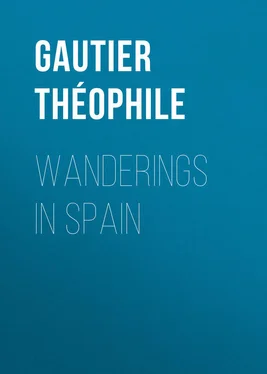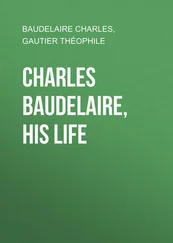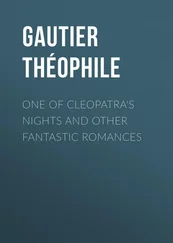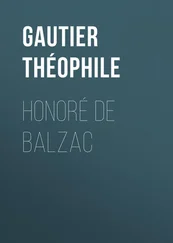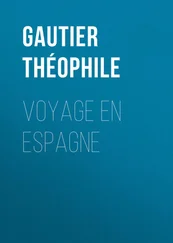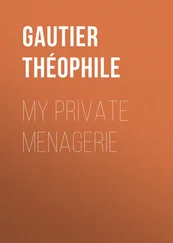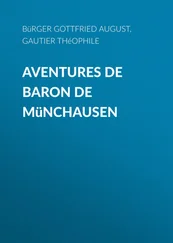Théophile Gautier - Wanderings in Spain
Здесь есть возможность читать онлайн «Théophile Gautier - Wanderings in Spain» — ознакомительный отрывок электронной книги совершенно бесплатно, а после прочтения отрывка купить полную версию. В некоторых случаях можно слушать аудио, скачать через торрент в формате fb2 и присутствует краткое содержание. Жанр: foreign_antique, foreign_prose, на английском языке. Описание произведения, (предисловие) а так же отзывы посетителей доступны на портале библиотеки ЛибКат.
- Название:Wanderings in Spain
- Автор:
- Жанр:
- Год:неизвестен
- ISBN:нет данных
- Рейтинг книги:4 / 5. Голосов: 1
-
Избранное:Добавить в избранное
- Отзывы:
-
Ваша оценка:
- 80
- 1
- 2
- 3
- 4
- 5
Wanderings in Spain: краткое содержание, описание и аннотация
Предлагаем к чтению аннотацию, описание, краткое содержание или предисловие (зависит от того, что написал сам автор книги «Wanderings in Spain»). Если вы не нашли необходимую информацию о книге — напишите в комментариях, мы постараемся отыскать её.
Wanderings in Spain — читать онлайн ознакомительный отрывок
Ниже представлен текст книги, разбитый по страницам. Система сохранения места последней прочитанной страницы, позволяет с удобством читать онлайн бесплатно книгу «Wanderings in Spain», без необходимости каждый раз заново искать на чём Вы остановились. Поставьте закладку, и сможете в любой момент перейти на страницу, на которой закончили чтение.
Интервал:
Закладка:
CHAPTER II
FROM BORDEAUX TO VERGARA
The Landes – Arrival at Bayonne – Information for Travellers – Urrugne – Saint Jean de Luz – Human Smuggling – Bridge over the Bidassoa – Irun – Travelling with Mules – Primitive Carts – Beggar Children – Spanish Bridges – Oyarzun – Astigarraga – A Spanish Supper – Puchero – Arrival at Vergara.
On leaving Bordeaux, the Landes recommence, if possible more sad, more desolate, and more gloomy than before. Heather, broom, and pinadas (pine forests), with here and there a shepherd squatted down, tending his flocks of black sheep, or a miserable hut in the style of the Indian wigwams, offer a very lugubrious and by no means diverting spectacle. No tree is seen but the pine, with the gash in it from which the resin trickles down. This large salmon-coloured wound forming a strong contrast with the grey tones of the bark, gives the most miserable look in the world to these sickly trees, deprived of the greatest portion of their sap. They have the appearance of a forest unjustly assassinated, raising its arms to Heaven for justice.
We passed through Dax at midnight, and traversed the Adour during the most wretched weather, with a beating rain and a wind strong enough to blow the horns off an ox. The nearer we approached a warmer climate, the sharper and more penetrating became the cold; and had not our cloaks been at hand, we should have had our noses and feet frost-bitten, like the soldiers of the Grande Armée in the Russian campaign.
When day broke we were still in the Landes , but the pines were mingled with cork-trees, which I had hitherto pictured to my mind only under the form of corks, but which are really enormous trees, partaking simultaneously of the nature of the oak and of the carob-tree in the eccentricity of their shape and the deformity and ruggedness of their branches. A number of blackish pools of a leaden colour, stretched on each side of the road; gusts of saltish air greeted our nostrils, and a sort of vague rumbling noise resounded on the horizon. A bluish outline next stood out upon the pale background of the heavens. It was the chain of the Pyrenees. A few instants afterwards an almost invisible line of azure, the sign of the ocean, told us that we had arrived. It was not long ere Bayonne rose up before us, in the form of a mass of tiles crushed by an awkward and squat-looking spire; but I will not abuse Bayonne, since any town viewed under the disadvantage of rainy weather is always wretched. The port was not very full. A few decked boats floated in a negligent and admirably idle manner alongside the quays. The trees which form the public promenade are very fine, and somewhat soften the austerity of the numerous right lines produced by the fortifications and parapets. As to the church, it is plastered over with yellow, varied with a dirty fawn; it possesses nothing remarkable save a kind of baldaquin of red damask, and a few paintings of Lépicié and others, in the style of Vanloo.
The town of Bayonne is almost Spanish in its language and customs; the hotel where we put up was called the Fonda San Estaban . As it was known that we were about making a long trip in the Peninsula, we were pursued with all sorts of recommendations. "Buy some red belts to sustain your body; arm yourselves with blunderbusses, combs, and bottles of water to kill the insects; take some biscuits and other provisions; the Spaniards breakfast on a spoonful of chocolate, dine on a piece of garlic washed down with a little water, and sup on a paper cigar; you ought also to take a mattress and a saucepan to serve as your bed and make your soup." The French and Spanish Dialogues, too, for the use of travellers, were not very encouraging. Under the head of "A Traveller at an Inn," we read the following frightful conversation – "I should like to take something." "Take a chair," replies the landlord. "With pleasure; but I should prefer something more nutritious." "What have you brought?" replies the master of the posada . "Nothing," says the traveller, sadly. "Then how can you suppose I can give you anything to eat? The butcher lives yonder, the baker a little further on. Go and get some meat and bread, and my wife, who is something of a cook, will prepare your provisions." The traveller, in a fury, begins creating a most frightful disturbance, and the host calmly puts into his bill – "Disturbance, 6 reals."
The Madrid coach sets out from Bayonne. The conductor is a mayoral , with a peaked hat adorned with velvet and silk tufts, a brown waistcoat embroidered with coloured ornaments, leather gaiters, and a red sash; these impart a nice little amount of local colouring. Beyond Bayonne, the country is exceedingly picturesque; the chain of the Pyrenees becomes more distinct, and beautifully undulating lines of mountains vary the aspect of the horizon, while the sea appears frequently to the right of the road. At each turn, between two mountains, its sombre mild and deep blue suddenly starts into sight, traversed, here and there, by volutes of foam whiter than snow, which no painter has, as yet, succeeded in re-producing. I here beg to apologise to the sea, never having seen it before but at Ostend, where it is nothing more than the Scheldt, transformed into a canal, as my dear friend Fritz used so wittily to express it.
We passed through the church of Urrugne, the dial of which has the following mournful inscription, in black letters, on it – " Vulnerant omnes, ultima necat. " Yes, melancholy dial, you are right. Each hour wounds us with the sharp point of your hands, and each turn of your wheel hurries us towards the Unknown!
The houses of Urrugne, and of Saint Jean de Luz, which is not far distant, possess a sanguinary and barbarous physiognomy, owing to the strange custom of painting red or blood-colour the doors and the beams which sustain the compartments of the masonry. Beyond Saint Jean de Luz is Behobie, the last French village. On the frontier, the inhabitants practise two kinds of trade to which the war has given rise – first, that of the balls found in the fields, and, secondly, that of human smuggling. A Carlist is passed just like a bale of goods. There is a certain tariff, so much for a colonel, so much for an inferior officer. As soon as the bargain is struck, the contrabandist makes his appearance, carries off his man, passes him over the frontier, and smuggles him to his destination, as he would a dozen handkerchiefs or a hundred cigars. On the other side of the Bidassoa, Irun, the first Spanish village, is visible: one-half of the bridge belongs to France, the other to Spain. Close to this bridge is the famous Isle of Pheasants, where the marriage of Louis XIV. was celebrated by deputy. It would be difficult to celebrate anything there at present, for it is not larger than a moderately-sized fried sole.
A few more revolutions of the wheel, and I shall perhaps lose one of my illusions, and behold the Spain of my dreams, the Spain of the Romancero , of the ballads of Victor Hugo, of the tales of Merimée, and the stories of Alfred de Musset, fade before me. On passing the line of demarcation, I remembered what the good and witty Henri Heine once said to me at Liszt's concert, with his German accent, full of humour and sarcasm, "How will you manage to speak of Spain when you have been there?"
One half of the bridge over the Bidassoa belongs to France, and the other half to Spain, so that you may have, at the same time, a foot in each kingdom, which is a great achievement. On one side you perceive the gendarme, grave, respectable, and serious; the gendarme red as a peony at having been restored to his social position by Edward Ourliac, in Curmer's "Français Peints par Eux-Memes;" 1 1 This work corresponds to "The Heads of the People," published, some time since, in London. – Translator.
while, on the other, is beheld the Spanish soldier, clad in green, and enjoying on the sward the voluptuous pleasure of repose with happy nonchalance. At the extremity of the bridge, you enter at once into Spanish life, with all its local colouring. Irun does not possess a single feature in common with a French town. The roofs of the houses jut out beyond the walls, while the tiles, alternately round and hollow, give the houses a most strange and Moorish battlemented appearance. The ironwork of the balconies, which project over the street, is of the most elaborate description, very surprising in an out-of-the-way village like Irun, and indicating a great degree of opulence now passed away. The women spend their lives upon these balconies, which are shaded with an awning with coloured stripes, and which are like so many aërian chambers attached to the body of the edifice. The two sides remain open, and allow a passage to fresh breezes and burning glances; but you must not look, however, for those dull and culotté 2 2 Culotté is the term applied by smokers to a pipe coloured by long use. – Translator.
tints (I beg pardon for the expression), those shades of bistre and old pipes that a painter might hope to see; everything is whitewashed, according to the Arabian fashion, but the contrast of this chalky tone against the deep brown of the beams, roofs, and balconies, is not without a fine effect.
Интервал:
Закладка:
Похожие книги на «Wanderings in Spain»
Представляем Вашему вниманию похожие книги на «Wanderings in Spain» списком для выбора. Мы отобрали схожую по названию и смыслу литературу в надежде предоставить читателям больше вариантов отыскать новые, интересные, ещё непрочитанные произведения.
Обсуждение, отзывы о книге «Wanderings in Spain» и просто собственные мнения читателей. Оставьте ваши комментарии, напишите, что Вы думаете о произведении, его смысле или главных героях. Укажите что конкретно понравилось, а что нет, и почему Вы так считаете.
